When it comes to defending drug cases, I’ve had clients arrested with tremendous quantities of drugs in their possession. One of the things that I found that many drug cases have in common is complexity whenever the state or the federal government pleads what’s called conspiracy.
This is because technically, for conspiracy, you only need two people. Doesn’t that make sense? Two people make an agreement. It doesn’t matter how much each person knows, so long as they know that the crime is going to be perpetrated.
Juries Are Able to Discern levels of Involvement In a Crime
The reason I’ve been successful in cases, where even though my client might be charged as a co-defendant, is that jurors know how to discern what a person has actively been involved with. They know how to discern what they participated with, and what their state of knowledge is.
So even though it’s a very comprehensive statute that I’ve dealt with dozens of times, my experience has been – and I’ll give credit to the community – most jurors see right through it.
Juries are not interested in whether somebody knew a little bit about something. What they want to know is did this individual actually, openly, and knowingly go ahead and actively participate in this so-called crime. Or were they just somebody who was either tangential or doing something what’s called “near presence,” which means they happened to be there.
I have a client right now who happened to actually just be “near presence” at a drug deal, that he had no idea it was going on when it happened.
Interviewer: And they still tried to charge him?
Acacia Law: Oh, they did, they wanted him to do 2 1/2 years. That is the same sentence as the dealers who had about $100,000 in their pockets. My client had just bought a pair of shoes, was with his wife’s friend, because he watches the kids during the day, and simply went to a shoe store to purchase shoes. He even had the receipt for the shoes. They thought they were just going to go get a joint or something. Well, when they went with these guys, they ended up in this warehouse where there was 500 pounds of marijuana.
Interviewer: That’s incredible.
Acacia Law: And he didn’t know what to do, and rightly so. It turns out and luckily for him that the person who was selling the marijuana was actually an undercover cop and did not pose a threat. But he didn’t know that, and thought the man was just a dealer.
Interviewer: I see.
Acacia Law: And since he was in the presence of dealers, he thought if he tried to walk out, he was going to be shot because they’re going to assume that he’s a rat. Other people entered into the warehouse, closed the iron door so the car could not get out of the driveway, and then closed the door to the warehouse.
Interviewer: That sounds frightening for him.
Acacia Law: I’ll give you one other example. I recently defended a DUI case where my female client had blown a .18. .18 is two and half times the legal limit. Basically, my client thought that the war was over before we ever picked a jury.
But I picked a jury, and I went carefully through the calibration records of the test, and as luck would have it, we had an engineer who was on the jury who understood how unreliable these machines could be. And because she did very well on her FST, the field sobriety test, and everything else, they found her not guilty, much to her relief.



